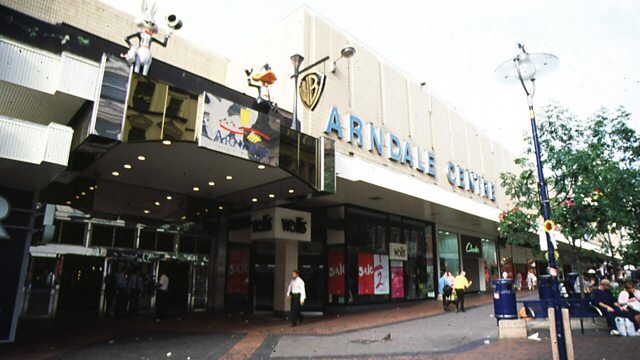The Council aren’t marking the occasion but the programme on the BBC tomorrow night will look at the events.
Twenty years on from the IRA bomb that destroyed a large section of Manchester’s city centre in June 1996, academics from Manchester Metropolitan University will be investing the consequences.
Prof Michael Symmons Roberts, Professor of Poetry, will be exploring the massive and rapid regeneration of the city following the explosion on radio show ‘The Bomb That Made Manchester?’, airing on Saturday 11 June at 8pm on BBC Radio 4.
The massive regeneration of Manchester has happened so rapidly – arguably outstripping that of any other British city in recent years – that it’s only natural that its population looks for a reason to explain it.
The simplest, and the one that’s taken hold most profoundly, is that the 1996 IRA bomb that destroyed a large section of the city centre provided the essential catalyst for the renaissance that has subsequently taken place. Although nearly two hundred people were injured, there were no fatalities on the day; combined with the fact that much of the damage centred on the widely disliked Arndale Shopping Centre, people soon began to talk of this as an opportunity rather than a tragedy.
Michael Symmons Roberts sets out to investigate whether it was in fact the bomb that did it, or whether the changes that have happened would have done so anyway, just at a slower rate – after all, bold projects were already underway in Manchester, most notably the successful bid to host the Commonwealth Games.
Michael goes back over the archive, listening to not just reports from the day but also the debates around city planning more generally that were triggered by the devastation wreaked by the bomb – and finds out the extent to which Manchester’s success offers a template for other cities, like Detroit and Christchurch, that have faced devastating blows.
Michael said: “I’ve worked in Manchester for more than two decades, first at the BBC and then at Manchester Met, and I’m from a family of Mancunians, so I’ve seen the rapid change in the city from different angles. The 20th anniversary of the IRA bomb felt like a fitting moment to look at how and why Manchester has changed, and to question some of the assumptions about that change.”
Dr Joanne Massey, Senior Lecturer in Criminology, was interviewed for the show. She said: “My PhD focused on the regeneration and rebuilding of Manchester after the bomb. Research showed that the 1996 IRA bomb ultimately provided the catalyst for the development of Manchester, speeding up the process rather than triggering it.
“The bombing happened at a time when funding from the Millennium Commission was available for regeneration projects. In addition, much of the work on public spaces such as Cathedral Gardens, Exchange Square and Piccadilly Gardens would have happened regardless of the bomb, as Manchester was due to host the Commonwealth Games in 2002.”







